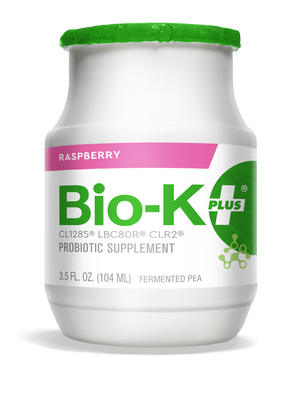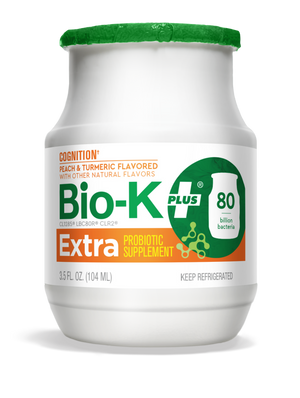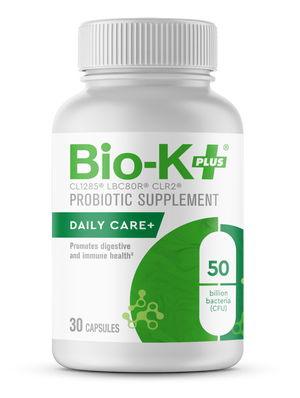Fiery Relationship: Understanding the Link between the Microbiome and Chronic Inflammation
If you or someone you know is suffering from heart disease, type 2 diabetes, inflammatory bowel disease, rheumatoid arthritis or even obesity, you may have heard of the term 'chronic inflammation'.
Chronic inflammation occurs when our body's normal inflammatory process doesn't turn off. When left unchecked like this, the immune system turns from friend to foe and begins to attack otherwise healthy tissues, setting the stage for chronic diseases, like the ones mentioned earlier.
Now if you are asking yourself, 'why does inflammation become chronic' or 'what is causing the immune system to attack healthy cells in the first place,' you're not alone. Chronic inflammation is believed to be at the root of some very serious diseases. Diseases that are not only challenging to treat but have an enormous impact on quality of life. As such, more and more research is being conducted to help us better understand chronic inflammation. As with anything related to the immune system, looking to the gut, and the role of our microbiome is a pretty good place to start.
Understanding Inflammation
Acute inflammation is the body’s immediate response to tissue and cell damage that is caused by pathogens, harmful stimuli or injury.1 Despite the unpleasant physical symptoms (pain, redness, loss of normal function of the affected cells), inflammation like this is essential, because it allows wounds and infections to heal.
As we previously discussed, chronic inflammation is a maladaptive version of acute inflammation, where immune cells keep firing, sometimes for months or years. Elevations in pro-inflammatory mediators, such as tumour necrosis factor (TNF-a), interleukin-6 (IL-6) and C-reactive protein (CPR) are reported, despite the absence of acute infection.2
If we look at the diseases that have ties to chronic inflammation (cardiovascular disease, inflammatory bowel disease, type 2 diabetes, rheumatoid arthritis to name a few), one interesting pattern emerges: these same diseases also have links to gut dysbiosis.2
The Microbiome & Chronic Inflammation
Because the microbiome has such a vital role in our immune system, there is a good reason to believe the gut could play a role in reducing chronic inflammation and limiting the risk of chronic inflammatory diseases.
Recent research has pointed to a loss of microbiota diversity, specifically as we age, as a potential contributor to chronic inflammation. Age-related changes to the gut microbiome are believed to be in response to antibiotic use, consumption of a 'western diet' (high fat, high sugar), and declines in nutrient intake, all of which can contribute to a loss of beneficial gut bacteria, and in turn the chronic activation of the immune system.
When beneficial bacteria populations decrease in the intestine, “gram-negative” bacteria gain ground. When these bacteria die, they release molecules called endotoxins (lipopolysaccharides), known for their pro-inflammatory action.3
Another theory connecting our gut microbiome to chronic inflammation is the role that leaky gut syndrome has on letting undigested protein molecules, toxins, and pathogens into our circulation, resulting in an immune response.
While the leaky gut theory does require more research to be fully understood, we do understand the anatomy of our gut. Covering our epithelial cells (i.e. the cells lining our gut) is a thin layer of mucus, that protect these cells from inflammatory causing compounds and bacteria.4 While the microbiota lining our GI tract do not act as the intestinal barrier per se, they are a vital player in helping to control its ability to function properly and are a central regulator of the epithelial cell functionality.
The Role of Diet in Keeping Your Gut Bacteria Healthy
The quality of your diet significantly impacts the structure of your microbiota. For example, a diet rich in animal protein and low in fibre decreases bifidobacterial populations and is linked to an increase in inflammatory processes.
Conversely, a Mediterranean diet (full of colourful plant-based foods) is rich in anti-inflammatory polyphenols and correlates with higher levels of short-chain fatty acids, a metabolite produced by beneficial microorganisms that fuel good bacteria populations. These fatty acids have several positive effects including thickening the intestinal mucosa, which as we know plays a role in protecting us from inflammatory compounds, toxins and pathogenic bacteria.
In addition to the healthy fibres, polyphenols and metabolites that a diet rich in plants provides us with, probiotic bacteria are an essential ally in keeping our intestinal flora balanced. Probiotic bacteria are naturally found in certain fermented foods or can be taken as a supplement. A probiotic should be chosen based on the strains used, the quantity (more than 10 billion CFUs) and the state of the bacteria consumed (alive or “hibernating”). They must have the ability to resist gastric acidity or encapsulated in enteric-coated capsules.
The strains of probiotic bacteria used in Bio-K+ work in synergy with each other and with the bacteria already present in our digestive tract. Bio-K+ drinkable probiotics combine the benefits of a probiotic with those of fermented food, restoring balance to the microbiota. When combined with a diet rich in fibre and low in saturated fat, the results are even more astonishing when it comes to preventing chronic inflammation or even maintaining or restoring overall health.
If you have questions about the microbiota and gut health, leave us a comment below. For more healthy inspirations, join our community. To stock up on Bio-K+, head to our store locator. Contact us or follow us on Facebook and Instagram.
References
1. http://www.cihr-irsc.gc.ca/f/44070.html
2. https://www.ncbi.nlm.nih.gov/pmc/articles/PMC5512975/
3. Belkaid Y, Hand TW. Role of the microbiota in immunity and inflammation. Cell. 2014 Mar 27;157(1):121-41





